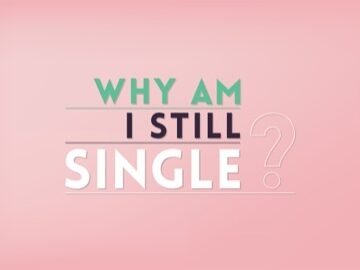The question Why am I single is one many people ask themselves, especially in the age of the internet where answers seem just a click away. Google searches around this question reveal common patterns, concerns, and curiosities about why someone might be single. These insights gleaned from search data not only highlight widespread sentiments but also provide valuable clues for individuals looking to understand their relationship status better. In this article, we’ll dive into what Google searches tell us about why people are single and how you can interpret these insights for your own life and love journey.
What Google Search Data Reveals
Analyzing Google’s autosuggestions and common queries linked to “why I’m single” reveals that people are searching for reasons relating to appearance, personality, timing, and external circumstances. For example:
-
Why am I single if I’m attractive?
-
Why am I single at 30 even though I’m successful?
-
Why am I single after a breakup?
-
Why am I single but happy?
These queries suggest that users are wrestling with self-image, timing in life stages, emotional recovery, and even happiness in singleness. The diversity of these searches shows that being single is not a one-size-fits-all experience—each person’s story is unique.
Common Themes Behind the Search Queries
-
Self-Doubt and Insecurity
Many ask “why am I single if I’m attractive?” reflecting a disconnect between external validation and internal feelings of loneliness or lack of connection. This highlights that attractiveness alone doesn’t guarantee relationship success; deeper emotional compatibility and confidence are key. -
Life Timing and Circumstances
Queries like “why am I single at 30” point to societal pressures and personal expectations about when one should be in a relationship. These can often lead to feelings of anxiety or inadequacy despite being single by choice or circumstance. -
Post-Breakup Healing
Searches related to being single after breakup indicate the emotional transition phase many experience. This period is critical for self-reflection and healing but can be confusing and lonely. -
Contentment in Singleness
Some searches explore why people are “single but happy,” signaling a healthy mindset where being single is embraced rather than viewed negatively.
What These Insights Mean for You
Understanding these themes from Google searches can help you frame your own singleness in a healthier, more empowered way:
-
Attractiveness Is More Than Looks: True connection often comes from shared values, emotional intelligence, and mutual respect—not just appearance. If feeling single despite being attractive, focus on deepening your emotional awareness and communication skills.
-
Timing Is Personal: Ignore external timelines about when you “should” be in a relationship. Life isn’t a race; it’s a personal journey. Use your single time to grow and explore what you truly want.
-
Healing Takes Time: After a breakup, give yourself grace. Use this period to rediscover your needs without pressure to jump into another relationship.
-
Embrace Singleness: Being single isn’t a flaw or failure; it can be a fulfilling period for self-love and self-growth. Many happy singles live rich, joyful lives.
How to Use Google Searches to Your Advantage
-
Research and Reflect: Use search queries as a mirror to your own questions and doubts. What you find trending may resonate with your feelings, giving you a sense of community and normalcy.
-
Seek Professional Help When Needed: If your searches indicate anxiety, depression, or persistent self-doubt, professional counseling helps. Resources like the American Psychological Association (APA) offer guidance on finding therapists who specialize in relationships and self-esteem (APA Help Finder).
-
Stay Critical: Not all online content is accurate. Be selective, reading reputable articles and avoiding clickbait or overly simplified advice.
Tips for Turning Singleness Into Strength
-
Focus on Self-Improvement: Invest in your hobbies, skills, and health. Confidence grows when you feel good about yourself.
-
Expand Social Connections: Pursue new activities or join groups that align with your interests—meeting people outside your usual circle enhances chances of meaningful connections.
-
Practice Mindfulness and Gratitude: Being present and appreciating your current life reduces stress about relationship status.
-
Set Realistic Relationship Goals: Know what you want in a partner but stay open-minded about how love may enter your life.
High-Authority Resource for Further Support
For anyone seeking to understand their emotional health during singleness, the Mayo Clinic provides excellent advice on dealing with loneliness and building healthy relationships (Mayo Clinic on Loneliness). This trusted health resource offers practical tips validated by research, perfect for empowering those navigating singlehood.
Read More: Why I’m Single: The Real Reasons Google Can’t Ignore
Conclusion
Google searches around “why I’m single” shed light on the diverse experiences behind singleness, from insecurity and societal pressure to healing and contentment. Reflecting on these insights can help you assess your feelings more objectively and make empowered choices about your love life. Remember, being single is not a problem to solve quickly but an important chapter for self-growth, healing, and preparation for lasting relationships. Embrace it fully with curiosity and kindness toward yourself.








[…] Read More: Why I’m Single According to Google Searches (And What It Means for You) […]